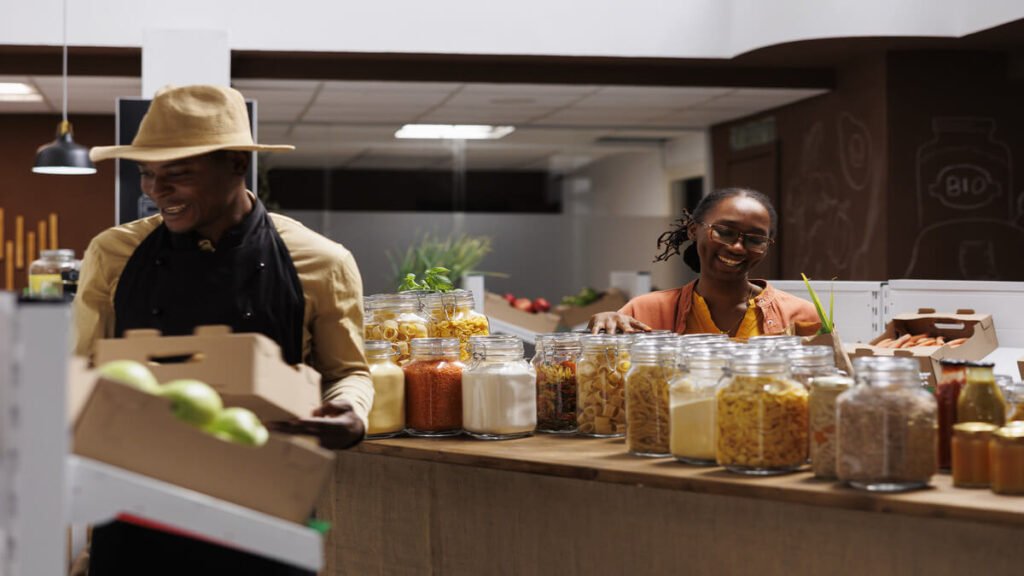For many South Africans, SASSA social grants provide a vital source of income. These grants—whether they are for child support, old age pensions, or disability—are meant to help families meet their basic needs. However, with the rising costs of living, it can be difficult to make these grants last through the month. One strategy that can help is bulk buying.
Bulk buying can save you money, reduce the number of trips to the store, and allow you to stock up on essential items. However, it’s important to be smart about how and what you buy in bulk to ensure that you’re actually saving money. This article will guide you through the benefits of bulk buying, what to look for, and tips on how to make the most of your SASSA social grant through this shopping method.
Why Bulk Buying Can Save Your SASSA Social Grant Money
Bulk buying is the practice of purchasing large quantities of items at one time, which often comes with a discount. Stores generally sell items in bulk at a lower per-unit price, which means you get more for less. This can be a great way to save money on non-perishable goods or items that you know you’ll use regularly, such as food staples, cleaning products, or personal care items.
Here are some of the benefits of bulk buying:
- Lower Prices: Items sold in bulk tend to have a lower price per unit, which helps you save in the long run.
- Fewer Trips to the Store: By purchasing items in bulk, you reduce the number of trips you need to make to the store, which can save on transport costs.
- Stock Up on Essentials: Having more of the things you need reduces the risk of running out and having to buy them at a higher price.
- Reduced Packaging Waste: Buying in bulk reduces the amount of packaging you bring home, which is better for the environment.
Save More: Boxer Specials: Unbeatable Prices from 23rd September to 6th October 2024
Tips for Successful Bulk Buying on a SASSA Grant
To make the most of your SASSA grant, you’ll need to plan your bulk buying carefully. Here’s how to do it:
1. Create a Monthly Budget
Before you start bulk buying, it’s important to know exactly how much you have to spend. Take the time to create a monthly budget that includes your SASSA grant income and any other sources of funds you have. List all your expenses, from rent and utilities to transportation and food. Once you know how much you have to spend, you can decide how much to allocate to bulk buying.
A budget will help you stay on track and avoid overspending. Remember to leave some money aside for unexpected expenses.
2. Buy Non-Perishable Goods in Bulk
One of the best ways to save with bulk buying is to focus on non-perishable goods. These are items that won’t spoil or go bad quickly. Common non-perishable items that are great for bulk buying include:
- Dry Goods: Rice, pasta, maize meal, flour, and sugar.
- Canned Foods: Beans, fish, vegetables, and soups.
- Cleaning Supplies: Detergent, soap, and disinfectants.
- Personal Care Items: Toothpaste, shampoo, and toilet paper.
Non-perishable items can be stored for long periods, allowing you to take advantage of sales and discounts without worrying about them spoiling.
3. Compare Prices
Before you buy in bulk, always compare prices between different stores. Check local supermarkets, wholesalers, and even online retailers to see which one offers the best deals. Some stores have special bulk-buying sections, where you can find items at discounted prices. Don’t forget to look at smaller, independent stores in your area—they may offer better prices on certain products than larger chain stores.
If possible, visit stores at the end of the month or during sales periods to find even better deals. Many stores offer discounts on items as they prepare to receive new stock, and you can benefit from buying these items in bulk.
4. Stick to a List
It’s easy to get carried away when buying in bulk, especially if you see items on sale that you don’t necessarily need. To avoid overspending, always shop with a list and stick to it. Your list should include only the items that you know you’ll use regularly and can store for long periods.
A shopping list will keep you focused on the essentials and prevent you from buying things you don’t need. It’s also a good way to keep track of what you’ve bought and how much you’re spending.
5. Store Items Properly
When buying in bulk, it’s important to store your items correctly to ensure they last as long as possible. Here are some tips for proper storage:
- Dry Goods: Store rice, maize meal, flour, and other dry goods in airtight containers to keep them fresh and prevent pests from getting in.
- Canned Goods: Keep canned foods in a cool, dry place, and always check the expiration dates before using them.
- Cleaning Supplies: Store cleaning products in a safe place, away from children, and make sure they’re tightly sealed to prevent spills.
- Personal Care Items: Store items like toothpaste, soap, and shampoo in a dry place to prevent moisture from affecting their quality.
Proper storage ensures that the items you buy in bulk remain in good condition for as long as possible, so you won’t have to replace them prematurely.
6. Shop with a Friend or Family Member
Another way to make bulk buying more affordable is to team up with a friend or family member. This is especially helpful if you don’t have enough storage space for large quantities of items. By shopping together, you can split the cost of bulk items and share the savings. It’s a great way to reduce expenses and ensure that you both benefit from lower prices.
7. Look for Bulk Buying Clubs or Groups
In many communities, there are bulk buying clubs or groups where members pool their resources to purchase items in large quantities at lower prices. These groups often negotiate better deals with suppliers or wholesalers, which can result in significant savings for members. If such a group exists in your area, consider joining to take advantage of the cost-saving benefits.
8. Take Advantage of Loyalty Programs and Coupons
Many stores offer loyalty programs or special discounts to regular customers. If your local supermarket has a loyalty program, sign up and use it every time you shop. Over time, you can accumulate points or discounts that can help you save even more money when buying in bulk.
Some stores also offer coupons that can be used for bulk purchases. Keep an eye out for these and use them when you can to get extra savings on your purchases.
What to Avoid When Bulk Buying
While bulk buying can save you money, it’s important to avoid common pitfalls that could lead to overspending or waste.
- Don’t Buy Perishables in Bulk Unless You Can Store Them Properly: Items like fresh vegetables, bread, and dairy products spoil quickly, so it’s usually not a good idea to buy them in bulk unless you have the means to store them, such as a freezer.
- Avoid Buying Items You Don’t Use Regularly: Just because something is on sale doesn’t mean you should buy it. If you don’t use the item often, it’s better to leave it on the shelf.
- Don’t Overbuy: Even when buying in bulk, it’s important to avoid overbuying. Only purchase what you can realistically use in a reasonable amount of time.
Read More: A 2024 Guide to Grocery Savings in South Africa
Stretching your SASSA social grant with bulk buying is a practical and effective way to manage your budget and ensure that you’re getting the most out of your grant money. By focusing on non-perishable goods, comparing prices, and shopping with a plan, you can reduce your overall expenses and free up money for other essential items or savings.
Bulk buying also means fewer trips to the store, saving you on transport costs and giving you peace of mind knowing that you have what you need. Just remember to stick to your budget, store your items properly, and avoid buying things you don’t need.
With the right approach, bulk buying can be a valuable strategy to help you make the most of your SASSA social grant, ensuring that you and your family have access to the essentials without running short before the end of the month.










